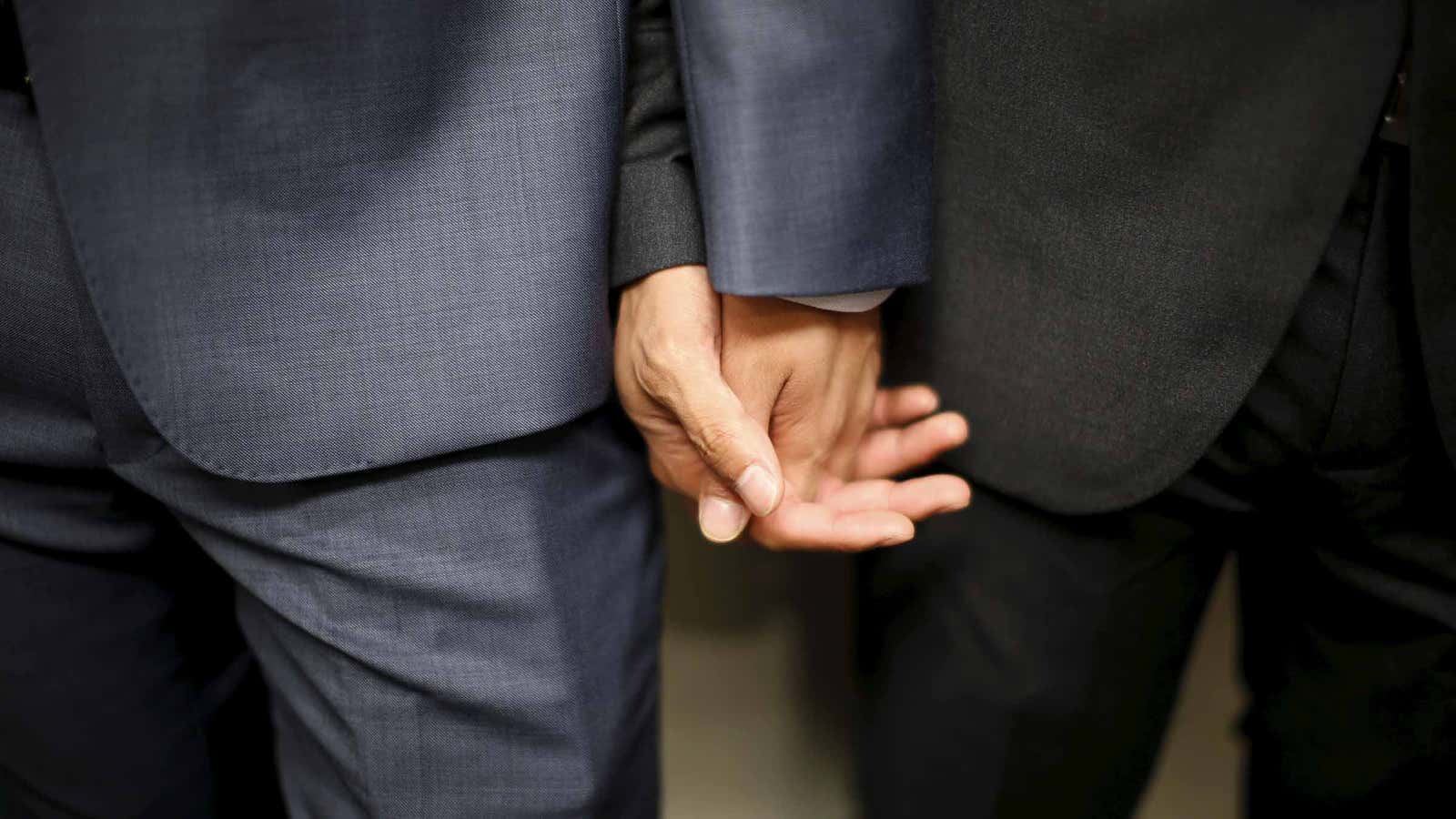Homosexuality has not been classified as a mental illness in China since 2001, yet some clinics still offer to “cure” gay people of what they describe as a “condition.”
In response, some Chinese activists have been going undercover to expose the clinics’ use of controversial practices. A recent report by the UK’s Channel 4 offers a glimpse of the somewhat terrifying methods being used, including electroshock therapy, on the promise that they will prevent homosexual desires.
Such practices have been outside of the law since a Beijing court ruled in December last year that a clinic in Chongqing, a city in China’s southwest, must pay compensation to a man who claimed he was traumatized by a round of electroshock treatment. Yang Teng, who was 30 at the time, had signed up for the controversial treatment in February that year after his parents pressured him to get married and have children. The clinic told him it would feel like “being bit by a mosquito,” his lawyer said. The actual experience was far worse. The Chongqing Xinyu Piaoxiang clinic was also ordered to issue a public apology on its website.
Despite the court’s ruling against so-called “gay cures” though, in China it is often the activists themselves who find themselves in trouble for highlighting the ongoing use of such practices. The activist in the Channel 4 report—referred to only as John—says he was visited by the police after conducting secret filming of electroshock therapies.
John explains in the film that police officers made it clear that they were aware he and his colleagues had been filming such practices.
In day-to-day life, gay people in China face less homophobic aggression than their counterparts in many other countries, and a major Pew study in 2013 found a growing minority of the population is inclined to answer “yes” to the question “Should homosexuality be accepted?” But that basic tolerance often disappears when it comes to a gay person’s parents, who were not likely educated about homosexuality, and who may simply consider the end of their family’s lineage, rather than the needs of their child.
“I’m out to everyone except my parents,” John explains in the film. “Because I think parents is the most hard part for the Chinese people.”
